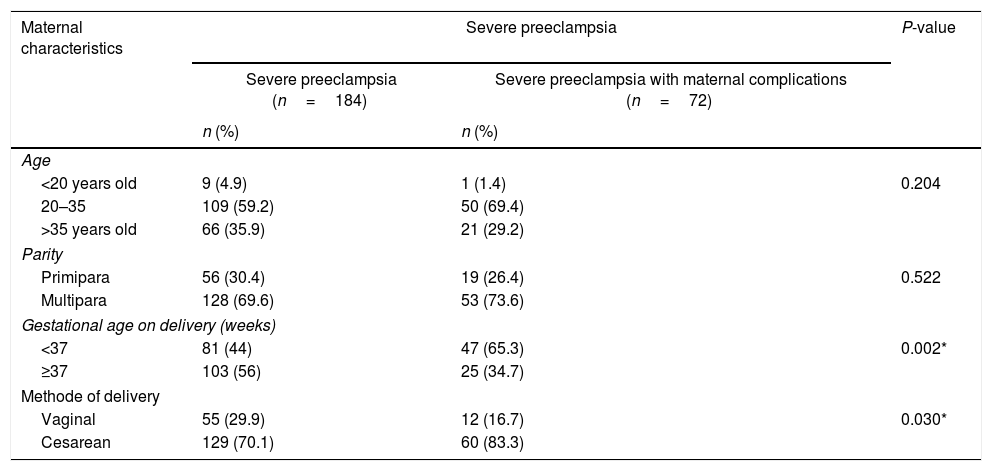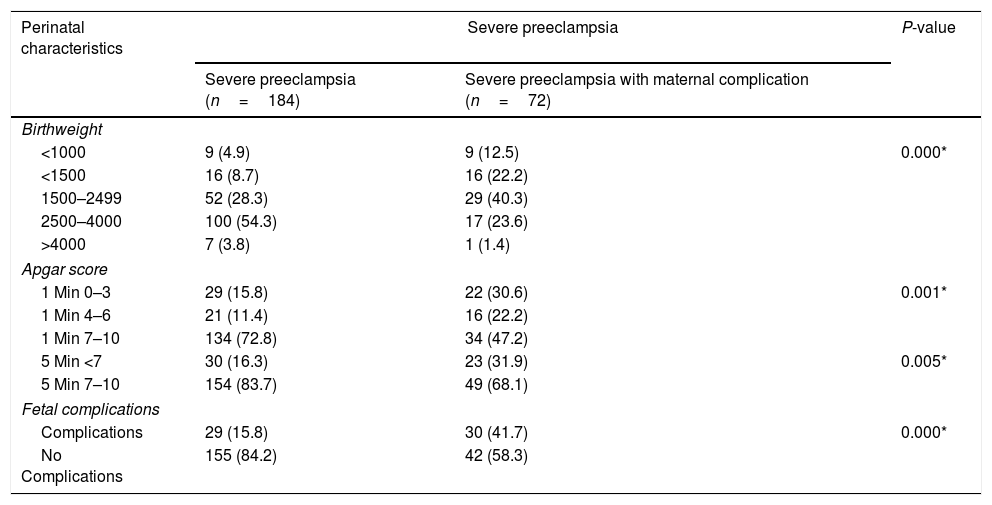Preeclampsia is one of the factors causing maternal and perinatal death. The purpose of this study was to find out the birth weight and the Apgar score of the newborn in correlation with fetal complications in mothers with severe preeclampsia.
MethodThis study was a descriptive retrospective study by reviewing the medical records of pregnant women who have been diagnosed with severe preeclampsia during the period of January 2017–May 2019. The study was conducted in 4 hospitals in Makassar. Data were statistically analyzed using the chi-square test.
ResultThere were 256 pregnant women who met the criteria of this study, 184 (71.9%) suffered severe preeclampsia, and 92 (28.1%) suffered severe preeclampsia with maternal complications. The patients with severe preeclampsia were mostly in age of 20–35 years old (59.2%), multiparous (69.6%), with gestational age on delivery≥37 weeks (56%) while In the severe preeclampsia with maternal complications group, most women were in age of 20–35 (69.4%), multiparous (73.6%), with preterm delivery (65.3%). Low birth weight was found more in the severe preeclampsia with maternal complications group (37.5%). The APGAR score of 7–10 in the first and fifth minutes was high in both groups. 41.7% of fetal complications occurred in the group of severe preeclampsia with complications. There are significant differences in gestational age on delivery, birth weight, Apgar score and fetal complications in the group of severe preeclampsia and severe preeclampsia with complications (p≤0.05)
ConclusionThe incidence of preterm birth, low birth weight, and fetal complications are more common in the group of severe preeclampsia with complications.








